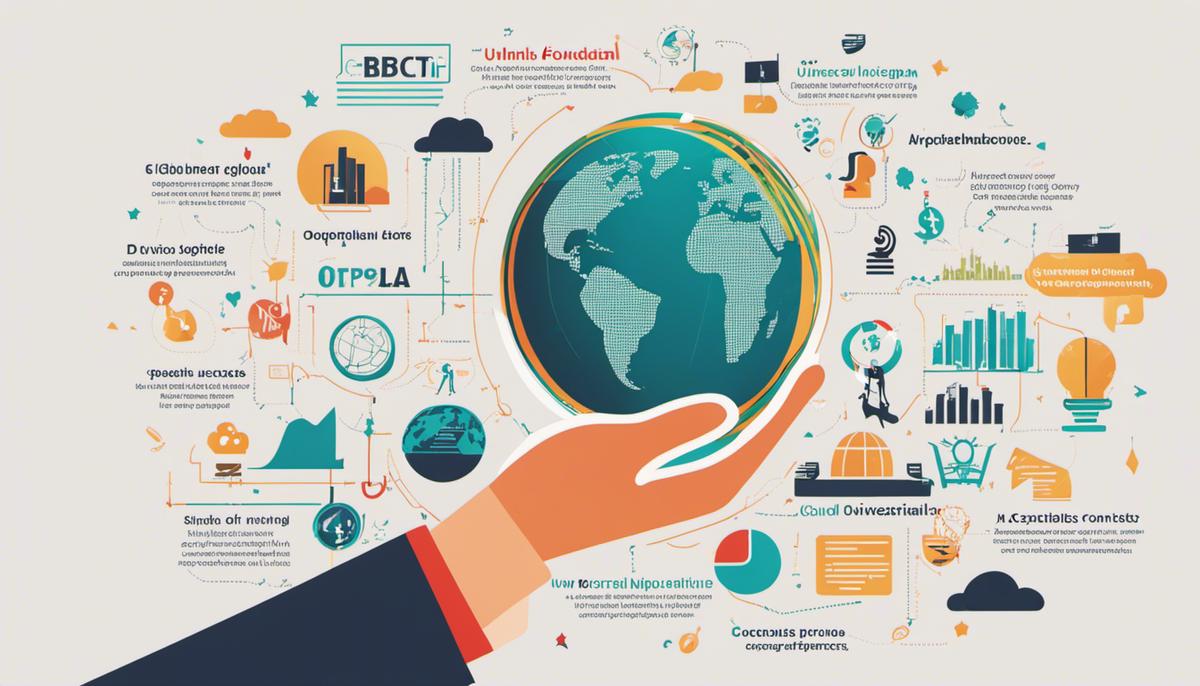Envision a world where every citizen, irrespective of their employment status, wealth, or societal stature, receives a regular monetary allowance sufficient enough to cover basic life necessities. This very concept, known as Universal Basic Income (UBI), is a revolutionary socio-economic proposal that promises to reshape our understanding of work, welfare, and wealth distribution. This innovative premise has caught the attention of policy-makers, economists, and philanthropists alike, setting ablaze a global debate on its merits and demerits. The exploration of UBI ranges from its foundational understanding, to its potential benefits, criticisms, and an appraisal of its overall policy impact, against the backdrop of a rapidly changing socio-economic and technological landscape.
Table of Contents
Conceptual Understanding of Universal Basic Income
The Dynamics of Universal Basic Income: Its Framework and Functionality
The emerging concept of Universal Basic Income (UBI) sparks invigorating debates among economists worldwide. Its allure resonates within the global context of economies evolving with rapid technological changes and the ongoing quest for effective, just socio-economic policies.
Universal Basic Income, at its core, is a revolutionary financial model envisioning a standard fixed income that every citizen, devoid of their economic or social standing, regularly receives from the government. This is indeed a reversal from traditional welfare schemes, which hinge on several prerequisites and often involve complex eligibility evaluations. UBI, alternatively, offers an undiscriminated financial aid system, driven by utmost egalitarianism.
The actual implementation, however, demands an in-depth understanding. UBI does not materialize in a socio-economic vacuum but within the fabric of existing economic networks. It essentially redesigns the welfare state, percolating down to the lowest financial strata. In doing so, UBI as a concept advocates for economic balance and social equity.
How does the UBI function? It emerges as a mechanism working primarily on two fronts: poverty alleviation and economic invigoration. By ensuring a guaranteed income for all citizens, it directly addresses prevailing income inequalities and poverty. Moreover, the predictability of a regular income can enhance individual spending, thereby stimulating a boost in the economy.
The financing of UBI begs deeper investigation. Frequently proposed funding sources include wealth taxes, natural resources revenues, or consolidated welfare budgets. Importantly, the variability in these sources stresses the need for contextual application of UBI relative to each country’s unique socio-economic landscape.
There have been interesting cases of UBI trials globally. Finland, for instance, tested a UBI-like scheme, offering monthly stipends to a selected unemployed group. The results offered mixed insights – improved well-being but minimal impact on employment levels. On the other hand, Stockton, California implemented a similar experiment that indicated an increase in full-time employment.
Such fascinating encounters underline the evolving dynamics of UBI – an ongoing experiment to harmonize socio-economic equality. But, as with any radical financial model, its ultimate fruition pivots on the careful balancing of these dynamics accompanied by meticulous strategizing and context-centric adaptation. This balance encompasses not only economics but also factors reflecting the broader societal, political, and cultural norms.
In the end, Universal Basic Income materializes as a beacon, shedding light on possibilities of constructing a more equitable socio-economic architecture while, simultaneously, presenting profound questions for policymakers and academics alike. The impassioned investigation into this concept further bolsters the urgency to understand, adapt, and innovate for an equitable future.

The Rationale and Advantages of Universal Basic Income
Universal Basic Income (UBI) has garnered significant intrigue in academic circles due to its potential for socio-economic transformation. Its basic premise suggests that every individual has the right to a certain income, irrespective of their circumstances, thus implying a distinct departure from other conditional welfare measures. The fervor behind UBI is chiefly due to its backers’ belief that it possesses the ability to fundamentally redefine the relationships between citizens, markets, and the state.
To begin with, proponents of UBI argue that it addresses the fundamental inequity embedded in conventional welfare schemes. They contend that these traditional methods often fail to reach the people most in need due to administrative inefficiencies and intricate eligibility criteria. UBI stands as a panacea with the potential to bypass these pitfalls, with its unconditional and wide-ranging applicability providing a safety net for all.
Central to understanding the merit of UBI is its potential to promote equality. Its universal nature ensures that no one is left behind in receiving financial aid, thus addressing systemic issues of welfare exclusion. Concurrently, UBI could also address the imbalance in unpaid work, often shouldered by women, by giving it economic recognition. Hence, it could empower the disenfranchised and bridge socio-economic disparities that seem intrinsically woven into our societal fabric.
Furthermore, UBI’s proponents posit that it could serve as an economic stabilizer in times of crisis. By providing a guaranteed income, UBI has the potential to assuage the negative impacts of economic downturns, resonating well with Keynesian perspectives of economic resilience. Evidence from trial UBI programs lends credence to this notion, indicating increased spending powers and improved economic health among recipients.
The conversation around UBI extends towards the realm of futuristic thinking as well. It’s seen as a potential answer to the challenges imposed by automation and artificial intelligence. As these technologies threaten job availability, a universal basic income could serve as a buffer, offering financial security to individuals as society navigates through the resultant turbulent advances.
Nevertheless, the introduction of UBI is not without complexities. It necessitates substantial public resources and fine-tuned taxation strategies, requiring prudential handling of a nation’s economic levers. Therefore, the proposition of UBI underscores the need for informed policy-making, nuanced understanding of local contexts, and sustained commitment to socio-economic advancement.
In the broader academic discourse, UBI represents more than a mere mode of wealth redistribution. It symbolizes an audacious envisioning of an alternative socio-economic order, underpinned by universality, dignity, and equity. Its exploration straddles not just the fields of economics or policy-making, but inherently questions the definitions of work, worth, and welfare, challenging us to reimagine societal norms.
In conclusion, the debate surrounding Universal Basic Income is a compelling amalgamation of normative ideals and practical considerations. Its proponents envisage a society where financial stability is foundational, and not an elusive privilege. The seduction of such a prospect keeps the discourse alive, while the complexities involved ensure that further rigorous study and analysis will continue to be pivotal. Therefore, while Universal Basic Income is neither an omnipotent panacea nor an impractical illusion, it remains a study in progress—a testament to the dynamic nature of socio-economic thought and the ceaseless endeavor for a resilient and inclusive society.

Criticisms and Disadvantages of Universal Basic Income
Having surveyed the conceptual landscape of Universal Basic Income (UBI), it’s crucial to forthrightly address the potential criticisms and concerns. Understanding these critiques is integral not only to policy formulation and effective implementation but also to bolstering the academic dialogue around UBI.
A primary concern lies in the potential disincentive to work, a criticism often leveled at UBI. Under the assurance of a base income, individuals might forgo employment thereby stifling productivity and economic growth. Empirical evidence, however, yields a nuanced perspective. Pilot trials, such as those in Manitoba and Namibia, indicate that the recipient populations did not largely offer widespread work aversion. Yet, the concern remains instrumental in the apprehension towards a comprehensive rollout of the UBI scheme.
The issue of inflation too forms a significant part of the critique. Injecting disposable income into the economy might, theoretically, contribute to an increase in demand for goods and services. This surge in demand could potentially lead to price hikes and, subsequently, inflation, essentially nullifying the gains envisaged by a UBI. Notwithstanding these theories, actual instances of inflation consequent to UBI implementation are yet to be empirically established and remain largely speculative.
A philosophical challenge to UBI concerns while it undeniably grants individuals freedom from financial constraints, it risks creating dependence on state-orchestrated welfare, thereby compromising individual autonomy. This aspect of UBI warrants critical engagement, as it weaves in socio-political dynamics with the economic ones, rendering the UBI discourse multidimensional.
Moving from conceptual critiques to implementation issues, the shift from a targeted benefit system to a universal one could pose manifold challenges. A complete overhaul of existing systems would necessitate comprehensive planning, incremental transition strategies, and extensive infrastructure development. This transformation could strain national resources and institutional capacities in developing economies.
Lastly, the cost of financing UBI remains a significant impediment. While the wealth tax, negative income tax, and capital tax have been proposed as potential funding sources, each embodies its own set of complexities in terms of feasibility, administration, and socio-economic fallout. Choices regarding UBI funding would have to navigate these intricacies in a balanced and calculated manner.
Thus, while UBI potentially offers an innovative approach to social welfare, it remains marred by several criticisms and implementation challenges. The marriage of theoretical prowess and empirical examination promises richer insights into UBI’s potential and pitfalls alike, enabling informed decision-making amid fluid socio-economic landscapes. Armed with this understanding, one must continue to navigate UBI’s intricate maze keenly aware that it, like any policy measure, will bear its share of both promise and problem.

Policy Implications and Future Directions
Begin with the declaration that the socio-economic shifts that Universal Basic Income (UBI) entails are laced with potential policy ramifications that extend beyond abating poverty and stimulating economies. Moreover, UBI ushers in a paradigm shift and sparks a new discourse around economics, employment, society, and philosophy, which demands astute policy development and implementation.
One immediate challenge that policymakers might face lies within the realm of labor and employment. Critics argue that UBI could disincentivize work, leading to a deceleration in economic output. Thus, policymakers must structure policies to ensure that UBI supplements, rather than replaces, labor income and that it enhances job flexibility and employment opportunities, rather than fostering dependency or complacency.
Additionally, the introduction of UBI may bring with it a surge of purchasing power among consumers, risking potential inflation. Policymakers must be prepared to craft strategic economic policies that will control potential surges in price levels. An interdisciplinary understanding of economics, combined with wider societal considerations, becomes essential in navigating these complex impacts, thus increasing the importance of continuous dialogue between economists, policymakers, and sociologists.
In contrast, others argue that Universal Basic Income poses a philosophical challenge, as it could inadvertently infringe on individual autonomy by altering the dynamics of human productivity and work ethics. The debate around UBI raises profound philosophical questions about the nature of labor, income, human dignity, and the structures of a fair society. Therefore, the policy narrative around UBI must simultaneously navigate these philosophical terrains while being underscored by robust economic analysis.
Also, there may be significant challenges in the actual implementation of UBI, tied to issues of public administration, governance, socio-economic dynamics, and public acceptance. The sheer scale of the operation, requiring uniform and regular income distribution to every citizen, necessitates robust administrative arrangements. Policymakers would need to create frameworks accounting for vulnerabilities, such as fraud or misuse, and societal realities, such as gender or racial disparities, to ensure the equitable distribution and reception of UBI.
Moreover, the mammoth cost of financing UBI would necessitate considerable political will and public acceptance of quite likely changes in taxation or expenditure priorities. Policymakers ought to provide transparency to this process, maintaining open channels of communication with the public, to ensure understanding and acceptance of these potential shifts.
Lastly, the ubiquity of digital platforms and the rise of data-driven decision-making adds another layer to the UBI policy debate. Acquisition, management, and utilization of reliable socio-economic data would become crucial in tailoring policies, predicting outcomes, and making course corrections, thus necessitating policies that foster data literacy, security, and privacy.
In the end, the UBI policy landscape is as rich in potential as it is fraught with challenges, which is perhaps reflective of the very nature of UBI as a social economic concept. As society continues to wrestle with the potentials of UBI, the policy implications – both material and philosophical – will no doubt continue to evolve, requiring continued inquiry, probity, patience, and creativity among policy makers, scholars, and citizens alike.

As we gaze into the future, the path towards a UBI implementation faces many uncertainties and challenges. These hurdles span economic, societal, and political spheres, and have the potential to shape the face of global economies and the very fabric of societies. Yet, if navigated successfully, a wisely implemented UBI policy holds the promise of forging a new form of societal safety net, redefining the meaning of work, and reshaping human dignity. The journey of UBI from a philosophical concept to potential policy initiative is a reflection of our collective aspirations for economic justice and human decency in a rapidly evolving world. It is a story that continues to unfold.

Lian Jadepeak is a Chartered Financial Analyst (CFA) with a sharp acumen for investment strategies and financial markets. With a background in finance and years of experience in wealth management, Lian offers readers expert insights into smart investing, market trends, and portfolio management. Her clear, analytical approach helps demystify complex investment concepts for both seasoned and novice investors alike.

